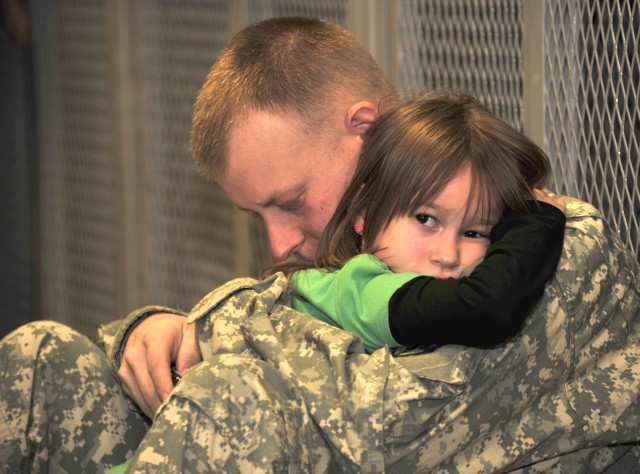Thriving as a Parent in Military Family Life
Managing military family life as a parent demands resilience and support. Prioritize self-care for emotional well-being. Nurture family connections through open communication and hobbies. Seek peer support and counseling services for comfort. Stay connected with deployed loved ones and seek resources for coping. Stay organized during reassignments and involve children in the process. Build support systems and engage in community resources. Balance parenting and military duties with open communication and quality time. Remember to care for yourself to better care for your children. Embrace personal growth and find belonging in the military community for thriving as a parent.
Key Takeaways
- Prioritize self-care to maintain well-being and resilience.
- Seek support from online forums and local meetups.
- Engage in peer support with other military families.
- Utilize counseling services for emotional struggles.
- Foster open communication and family connections.
Understanding the Military Lifestyle

Understanding the military lifestyle can be demanding, but it’s essential for managing the unique experiences and demands that come with being part of a military family. Deployment challenges are a significant aspect of military life that can bring about stress and uncertainty. The separation from a deployed loved one can be emotionally taxing, requiring resilience and support from the family unit. It’s vital to acknowledge the sacrifices made by both the service member and the family left behind during deployments.
Insights into military culture can provide a deeper understanding of the values, traditions, and expectations within the military community. Adapting to the structured nature of military life, with its emphasis on discipline and hierarchy, can help in handling the challenges that arise. Being aware of the customs and protocols unique to the military can foster a sense of belonging and camaraderie among military families.
Building Resilience as a Parent

As a military parent, it’s essential to prioritize self-care to maintain your well-being and capacity to support your family.
Nurturing family connections through quality time and open communication fosters resilience in both you and your children.
Prioritizing Self-Care
Prioritizing self-care as a parent in a military family setting is essential for building resilience and maintaining your well-being amidst the unique challenges you may face. Self-care routines aren’t just a necessity but a requirement for your mental health.
Finding time for personal hobbies can provide a much-needed escape from the stressors of military life. Whether it’s reading a book, going for a run, or indulging in a creative pursuit, carving out moments for yourself is vital for recharging your batteries.
Stress management is a key component of self-care. It’s okay to ask for help when you need it and to set boundaries to protect your own well-being. Remember, taking care of yourself isn’t selfish; it’s necessary for you to be able to care for your family effectively.
Prioritize activities that bring you joy and help you relax. By investing in your own well-being, you’re better equipped to navigate the challenges of military family life with resilience and strength.
Nurturing Family Connections
To foster family connections and build resilience as a parent in a military family setting, fostering open communication and creating bonding opportunities are essential steps. Family bonding is vital in managing the unique challenges military life presents.
Make time for regular family activities where everyone can participate, fostering connections and creating lasting memories. Connection building can be strengthened by engaging in meaningful conversations with your children, encouraging them to share their feelings and concerns. This open dialogue can help them feel supported and understood, promoting a sense of unity within the family.
Additionally, consider establishing family traditions or routines that provide a sense of stability and togetherness. Whether it’s a weekly game night, a monthly movie marathon, or a special meal on Sundays, these rituals can strengthen family bonds and create a sense of belonging.
Seeking Support Resources
For military parents addressing the unique challenges of family life, seeking out support resources is crucial to building resilience and maintaining well-being.
In times of uncertainty or stress, turning to online forums can provide a sense of community and understanding. Engaging with other military families through local meetups can also offer a valuable opportunity for connection and shared experiences.
Peer support is another essential resource for military parents. Connecting with individuals who can relate to your situation can offer comfort and practical advice.
Additionally, seeking counseling services can provide a safe space to address any emotional struggles or concerns that may arise.
Coping With Separation and Deployment

Managing emotions during deployment can be challenging, but remember, you aren’t alone. Building a support network of friends, family, and other military families can provide invaluable comfort and understanding during this time.
Communication strategies such as setting up regular check-ins and sharing feelings openly can help strengthen family bonds despite the distance.
Managing Emotions During Deployment
Managing the emotional challenges that come with deployment can be a difficult journey for military families. During these times, emotional regulation and self-care are essential for maintaining mental health.
It’s important to acknowledge and accept the range of emotions you may experience, from sadness and worry to pride and loneliness. Engaging in coping mechanisms such as journaling, exercise, or talking to a counselor can help process these feelings.
Self-care activities like meditation, hobbies, or spending time with loved ones can provide moments of peace amidst the chaos of deployment. Remember, it’s okay to seek professional help if needed. Your mental health is just as important as physical health during this time.
Stay connected with your deployed loved one through letters, emails, or video calls to maintain a sense of closeness. Sharing your feelings with friends, family, or support groups can also provide comfort and understanding.
Building Support Networks
During deployment, establishing a strong support network is essential for coping with separation and maintaining resilience in military family life. Consider attending parenting workshops, joining online forums, or connecting with other military families for peer mentoring. These avenues provide valuable insights, tips, and emotional support from individuals who understand the challenges you’re facing.
Additionally, counseling services can offer professional guidance and a safe space to process your emotions during this difficult time. Seeking help from trained counselors can equip you with coping strategies and tools to navigate the complexities of separation and deployment.
Communication Strategies for Families
Establishing effective communication strategies is essential for military families coping with separation and deployment, ensuring connection and understanding during challenging times. Active listening plays a pivotal role in fostering open, honest conversations between family members. By actively listening to each other’s thoughts and feelings, you can show empathy and support, strengthening your bond despite the distance.
Setting boundaries is equally important to maintain healthy communication. Clearly defining expectations and respecting each other’s space can help avoid misunderstandings and conflicts.
Moreover, incorporating positive reinforcement can uplift spirits during difficult periods. Acknowledging each other’s efforts and expressing appreciation can boost morale and create a positive atmosphere within the family.
When disagreements arise, prioritizing conflict resolution through calm discussions and finding common ground is key. Resolving conflicts constructively can prevent tension from escalating and promote harmony within the family unit.
In times of separation and deployment, communication strategies centered around active listening, setting boundaries, positive reinforcement, and conflict resolution can greatly contribute to maintaining strong family ties and dealing with challenges with resilience.
Navigating Reassignments and Moves
When faced with reassignments and moves in military family life, staying organized and prepared can greatly ease the adjustment for both you and your children. School changes are a significant part of this process. Make sure you have all necessary documents ready for enrollment in the new school. Providing emotional support to your children during this time is essential. Encourage open communication about their feelings and help them adjust to the change positively.
Finding childcare in a new location is another essential aspect. Research local childcare options beforehand and visit facilities to guarantee a safe and suitable environment for your children.
Making friends in a new community can be challenging but is important for both you and your children. Attend community events, join support groups, or participate in activities that interest you to meet new people and build a support network.
Supporting Children Through Transitions

Supporting your children through changes involves providing them with reassurance, stability, and open communication to help them navigate shifts in their lives smoothly. When facing adjustments in a military family, helping children adjust is essential. Addressing their emotional needs and offering reassurance can make a significant difference in how they cope with changes. Children thrive in environments where they feel secure and supported, so creating stability amidst modifications is key.
Open channels of communication are crucial during times of change. Encourage your children to express their feelings and concerns, and listen attentively to what they’ve to say. By acknowledging their emotions and validating their experiences, you can help them feel understood and supported.
Additionally, maintaining routines and traditions can provide a sense of familiarity and comfort during uncertain times. Whether it’s a bedtime story or a family dinner tradition, these small rituals can anchor your children amidst change.
Creating a Strong Support System
During times of change and adjustment in military family life, building a strong support system is vital for helping your children thrive and feel secure.
As a military parent, it’s important to seek out online communities and peer support. Online communities can provide a platform for you to connect with other military families facing similar challenges. These spaces offer a sense of belonging and understanding that can be comforting during times of stress or uncertainty.
Peer support is equally important in creating a strong support system. Building relationships with other military parents can provide a network of understanding and empathy. Sharing experiences, advice, and resources with peers can offer valuable insights and reassurance.
Whether it’s through informal gatherings, support groups, or virtual meetups, engaging with peers who can relate to your military family life can be incredibly beneficial.
Balancing Parenting and Military Duties
Finding a balance between fulfilling your military duties and being present for your children can be a challenging yet essential aspect of parenting in military family life. Parenting challenges often arise when trying to juggle the demands of military obligations while ensuring your children feel supported and cared for.
It’s vital to communicate openly with your children about your work commitments, helping them understand the importance of your military service while also reassuring them of your love and presence in their lives.
One strategy to help balance parenting and military duties is to establish routines that provide stability and predictability for your children. Setting aside dedicated quality time for your kids, even amidst a busy schedule, can strengthen your bond and create lasting memories.
Additionally, involving your children in age-appropriate discussions about your military obligations can foster understanding and resilience within the family unit.
Prioritizing Self-Care and Well-Being
To guarantee the well-being of both yourself and your children in the midst of balancing military duties and parenting responsibilities, prioritizing self-care is essential. Mindful self-care isn’t a luxury but a necessity, especially in the demanding life of a military parent.
Taking time for yourself, whether it’s through meditation, a hobby you enjoy, or simply getting enough rest, is vital for maintaining your emotional well-being.
Personal growth and resilience-building are also key components of self-care. Embracing opportunities for personal development, seeking out support when needed, and fostering a positive mindset can help you navigate the challenges of military family life with strength and grace.
Remember that taking care of yourself enables you to better care for your children and fulfill your military obligations effectively.
Finding Community Resources and Assistance
Utilize the various community resources and assistance available to military families to alleviate some of the challenges you may face in balancing your parenting duties with military life.
Connecting with peers and joining clubs specifically tailored for military families can provide you with a sense of camaraderie and support. These connections can offer valuable insights, advice, and a network of individuals who understand the unique demands of military life.
In addition to peer support, make sure to take advantage of local services and events. Many communities offer programs designed to assist military families with childcare, education, mental health support, and more. By attending these events and utilizing these services, you can access valuable resources that can help ease some of the burdens you may encounter.
Frequently Asked Questions
How Can I Maintain a Sense of Normalcy for My Children During Deployments?
You can maintain normalcy for your children during deployments by establishing routines, building resilience, creating stability, and fostering communication. Consistency and open dialogue help them feel secure and supported through challenging times.
What Are Some Creative Ways to Stay Connected With My Partner While They Are Away?
To stay connected with your partner while they’re away, try scheduling virtual dates, sending thoughtful care packages, surprising them with heartfelt letters, and enjoying shared hobbies or activities even from a distance. Keep that bond strong!
How Do I Help My Children Cope With Frequent Moves and Changing Schools?
Moving frequently can be tough on kids. Help them adjust by creating routines, staying involved in their academics, and seeking community resources for support. Keep an eye on their mental health and offer comfort during changes.
What Are Some Strategies for Managing Stress and Anxiety as a Military Parent?
To manage stress and anxiety as a military parent, prioritize self-care practices like exercise and setting boundaries. Use effective communication techniques with your family. Try mindfulness exercises to stay present. Seek support through local or online support groups.
Where Can I Find Specialized Support for Military Families in My Area?
You can find specialized support for military families in your area by reaching out to local resources and community organizations. They offer services tailored to your needs, connecting you with others who understand and can help.
Conclusion
As a military parent, you face unique challenges but also have the strength to overcome them.
By understanding the military lifestyle, building resilience, and prioritizing self-care, you can thrive in this role.
Remember, you aren’t alone in this journey. Lean on your support system, seek community resources, and take care of yourself.
Your dedication to your family and country is commendable, and you have the ability to navigate this lifestyle with grace and resilience.

Chad Adan Kace, a young dad from Vermont, shares his parenting journey with a touch of humor and lots of love. Father to a lively baby, he explores the joys and challenges of fatherhood through his stories.







